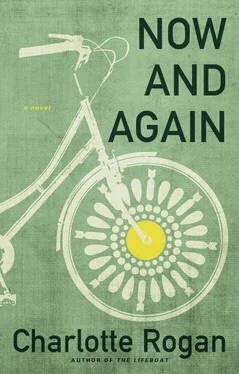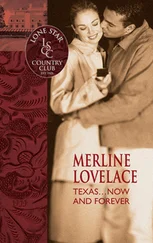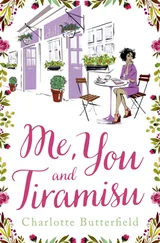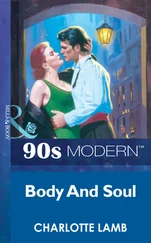Kelly went off to see about the water just as Pig Eye came back with the map and said, “Betts says we need to get going. It’s getting late. It’s only going to get hotter, and they’re getting a buzz about some kind of movement up north.”
They were ten minutes late. Then fifteen. Danny was going over the cargo manifest item by item one last time when Betts came up and said, “Five minutes. Tell the others to be ready in five.”
“I’m just checking the list,” said Danny, and Le Roy said, “Shit, man, you can check and recheck, but that sucker’s already been fired.”
“I know,” said Danny with a grin. “But I’m checking anyway.”
It was an article of faith among the troops that there was no rhyme or reason to who made it and who didn’t. The bullet with a soldier’s name on it had already been fired if it was going to be fired, and if it wasn’t, well, you were good. It was the kind of comforting fatalism that appealed to Le Roy. Whenever E’Laine worried about him, he said, “Don’t you worry, baby. If my number’s up, it’s up, and if it ain’t, it ain’t.”
But they did what they could anyway, so Le Roy made sure both radios were in working order and the tanks were full of fuel while Danny checked and rechecked the straps that secured the equipment and Kelly rustled up the cases of water and filled his CamelBak and an extra canteen because water was important to Kelly, not that it wasn’t important to all of them, and Harraday paced back and forth and got himself into what he called “mission mode” and Rinaldi fished out his cross and kissed it and Pig Eye patted his pockets and looked around kind of wildly.
“Pig Eye’s going to be a problem,” said Le Roy, but he was talking to himself because everyone was busy taking care of last-minute tasks before hoisting themselves up into the trucks just as Summers blasted the horn of the vehicle Le Roy was riding in and Tishman climbed up into the front right seat of the extra gun truck and Finch and the other gunners climbed into their slant-sided turrets and the line of trucks ahead of them ground into gear. Then Betts shouted, “Okay, boys, let’s roll,” which Le Roy remembered was what that guy on one of the 9/11 planes had said just before it exploded over a field in Pennsylvania.
2.9 Pig Eye
Pig Eye spent the boring hours driving or on patrol imagining different escape scenarios where he not only had to get away, but also had to make it back home under his own steam. A major component of the fantasies was imagining what he would need in order to accomplish the task. It gave him something to do to plan elaborate lists of supplies and to keep an eye out for useful items. When he found one, he added it to his kit: a protein bar, a travel alarm clock, an extra pair of paracord laces, a spool of wire, a folding knife, and now the detonator. The pocket wasn’t big enough for everything in his collection, so he had to rotate what he kept in it. He stored the items he didn’t have room for in a drawstring canvas bag in his locker.
When they were together on patrol, Le Roy or Hernandez would come up with a situation and ask Pig Eye how he would get out of it, or they would quiz each other about escape techniques. “What’s the breaking strength of paracord?” Pig Eye might ask. Or Hernandez might want to know, “When is the best time to escape?”
“Right away,” Pig Eye would say. “Your first opportunity is always the best one you’ll have.”
On patrol the previous evening, Hernandez had taught him a time-slowing trick that involved imagining he could throttle down the surrounding action so it played at low speed, giving him more time for whatever he was doing, and Pig Eye had imagined a scenario where barbed wire figured in. So that morning he had switched out the cigarette lighter for a pair of wire cutters he had won off another soldier in a poker game. “Just in case,” he had said when Hernandez caught his eye, and Hernandez had said, “Yeah, man, just in case.”
The only book Pig Eye had ever read voluntarily was The Things They Carried, and the idea that what a man carried with him said something profound about who the man was had stayed with him. He had come to disdain the sentimental and useless treasures most of his comrades pulled from their own pockets to moon over at night. A letter from his mother wasn’t going to save his life. A picture of Emmie wasn’t going to get him home. Still, among the things in the cargo pocket was just such a picture. He knew it said something about him, and what it said was that he was irrational and soft. It was awareness of his weaknesses that made him extra meticulous in his plans for escape, even though he also knew that escape was impossible, for let’s say he could get away from his captors, where would he go in that forbidding and alien land?
One of Pig Eye’s most shameful secrets was that his escape fantasies didn’t always entail escaping from Iraqi captors, but from his unit. When he had thoughts like those, he felt like a traitor. But even when he closed his eyes and forced himself to imagine he was being held hostage by both Osama bin Laden and Saddam Hussein, he couldn’t always get the bad kind of fantasy out of his head.
“What are the two most important things in any escape?” asked Pig Eye, trying to start a conversation with Danny, who was sitting next to him in the front seat, alternately scanning his sector and siting down the barrel of his M4.
“A howitzer,” said Danny.
“No. These things are commonplace and they don’t take up so much room.”
Danny thought for a minute and then said, “Water.”
“I’ll give you a hint,” said Pig Eye. “I don’t have either of them in my kit.”
“Why the hell not?” asked Danny. “If they’re the most important thing.”
“Because everyone has them and no one does.”
“Okay, riddle man, what are they?”
“Time and opportunity,” said Pig Eye. “Opportunity and time.”
After that Danny fell silent again and Pig Eye went back to thinking about Emmie and how because of Harraday “taking care of” had morphed in his mind into “handle” and “handle” had morphed into “pork.”
It didn’t take her long to get a job up at the prison. She told me being around criminals day after day didn’t bother her, but I wonder if it did.
— True Cunningham
She said her eyes were finally open. She said saving someone else’s son was the only way to save her own.
— Tiffany Price
I like fairy tales as much as the next gal, but Maggie actually believed she could change things. She wanted to save them all.
— Valerie Vines
I think there was another side to her. I’m not saying she didn’t love Lyle. I’m just saying that he was her ticket out of that house way back when, and maybe she was looking for another ticket now.
— Lily De Luca
3.1 Maggie
Hurry, Maggie said to herself as she rushed down the prison steps in the evenings, and then she said it again as she took the bus to the shopping plaza to buy something for dinner, after which she waited impatiently in the parking lot for Lyle or he waited impatiently for her. Mornings, it was the same thing in reverse. She would arrive at the prison breathless, her head spinning with competing admonitions: Move a little faster! Haste makes waste! Nobody cares if you’re late or not! She shivered to think that defeat was lurking and might be inevitable. But late for what? And why defeat?
The prison was set on a rise, dwarfing the people who flocked every day from the employee parking lot up the long flight of granite steps and through a gauntlet of metal detectors and guards charged with keeping the prisoners in and contraband out. Every time Maggie stepped through the gate into the chilly welcome center, she winced as if she were guilty of something, as if the metal detector could see the image of the top-secret document that was squirreled away in her brain or as if the escaped one-eyed men with hooks for arms her father had invented to scare his children into obedience were watching her from wherever they were hiding. It was easy to imagine her father waiting in the shadows too, to shout at her for something she had done or not done — a shoe unlaced, a toy left carelessly on the stair instead of put away in a closet, for crying or not crying when he smacked her, or the only jam to be found in the cupboard was strawberry when didn’t he always like peach — or to chase the four of them into their rooms, bolting the doors from the outside as if order in the house, as in the world, depended upon incarceration.
Читать дальше












